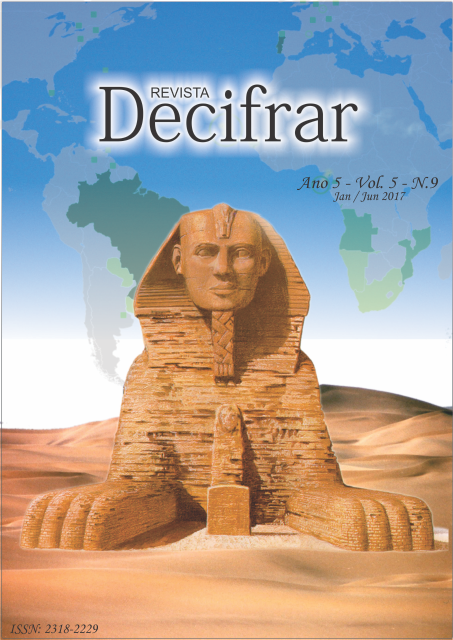A FUNÇÃO HUMANIZADORA DA LITERATURA E OS DIREITOS HUMANOS NA SALA DE AULA
DOI:
https://doi.org/10.29281/rd.v5i9.3884Resumo
O artigo intitulado A função humanizadora da Literatura e os Direitos Humanos na sala de aula apresenta a função humanizadora como o principal fator de ensino da Literatura à criança/adolescente, pois é, a partir do processo de formação da criança, que já se deve abordar assuntos relacionado à sociedade, que produzam uma reflexão crítica sobre a sociedade que vivem, construindo conhecimentos para o exercício da cidadania. É dever da família, porém é dever também da comunidade, da sociedade em geral e do poder público assegurar a efetivação de vários direitos à criança. Sendo assim, o professor compõe a comunidade e sociedade em geral, é um dever que cabe a ele (a nós) assegurar a efetivação desses direitos, usando a Literatura como ferramenta para isso. Então, entra o papel do professor, podendo efetivar não só procurando órgãos públicos e inscrevendo a criança em programas sociais etc., mas usando suas aulas como ferramenta de aprendizado sobre quais são direitos e deveres de seus alunos na sociedade. Ele (nós) é a ponte que leva o conhecimento. A proposta é de inclusão da Literatura nessa bagagem, não para um passatempo, mas florescendo a capacidade crítica por meio da leitura, formando um leitor/ser humano capaz de ser um cidadão que age com sabedoria e competência na sociedade, usufruindo da função humanizadora com senso crítico, político, social e psicológico.
PALAVRAS-CHAVE: Literatura; Função Humanizadora; Professor; Formação; Criança.
ABSTRACT: The article entitled the humanizing function of literature and human rights presents the humanizing function as the main factor of literature teaching to child/adolescent, because, since the child formation process, it is necessary to adress issues related to the society, that produce a critical reflection concerning that society they live in, building knowledge to the exercise of citizenship. It IS the duty of family, nevertheless, It is also the duty of community, the society in general and the public power to ensure the realization of several rights to the child. Therefore, the teacher composes the community and the society in general, It is a duty of this professional (and us) to ensure the realization of these rights, using literature as a tool. So, comes the role of the teacher, being able to effect not only looking for public agencies and enroll the child in social programs etc, but using their classes as a learning tool about the rights and duties of their students in society. The teacher (us) is the bridge that leads the knowledge. The proposal is for inclusion of literature, not only as a hobby, but flourish the critical capability through the reading, forming a reader/human capable of being a citzen who acts wisely and competently in the society, using the humanizing function as critical, political, social and psychological sense.
KEYWORDS: Literature; Humanizing Function; Teacher; Formation; Child.
Downloads
Downloads
Publicado
Como Citar
Edição
Seção
Licença
Todos os artigos desta revista obedecem a licença Creative Commons - Attribution 4.0 International (CC BY 4.0).










